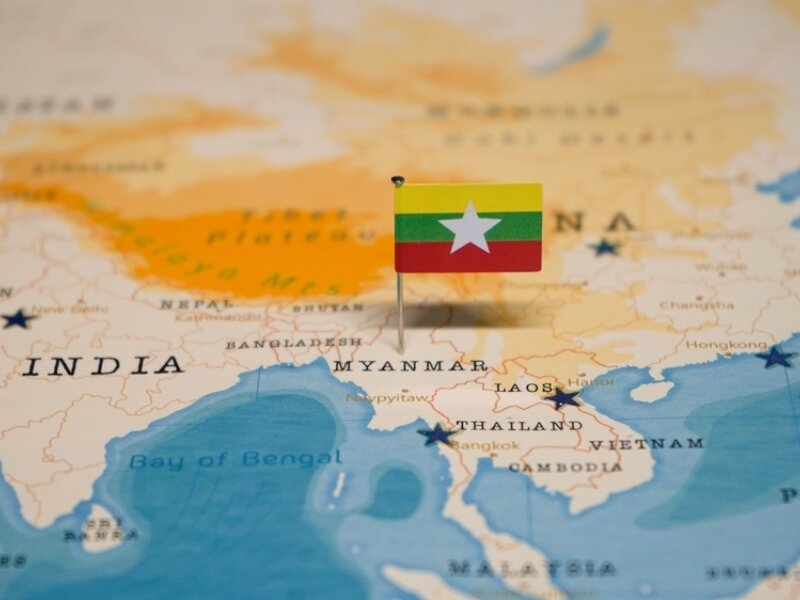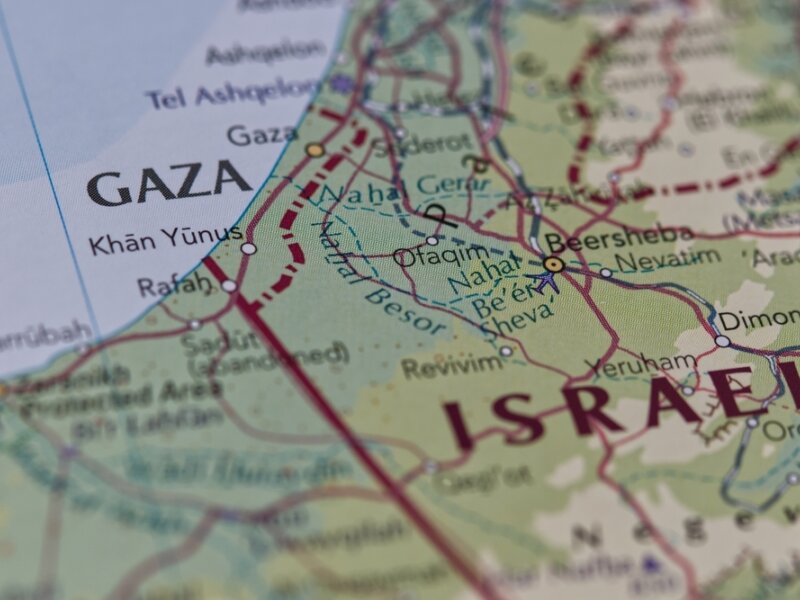Israel under attack
On Saturday, October 7, Hamas launched a violent terrorist attack on Israel from the Gaza Strip that left hundreds dead and thousands injured. An analysis by Anna Maria Cossiga

Israel is at war. Prime Minister Binyamin Netanyahu and Defense Minister Yoav Gallant made these declarations after the devastating and unexpected attack that came from Gaza by land, sea and air on Saturday, October 7. The operation launched from the Strip was called the “Al-Aqsa Flood.” The facts are well-known: thousands of rockets, fired from the Strip, hit the south and center of the country, reaching Jerusalem and Tel Aviv; Palestinian militias infiltrated Israeli territory, killing, raping, occupying towns and villages, kidnapping hostages and transferring them to Gaza. As we write, there are 700 Israeli dead, 2300 wounded, according to the latest numbers, but the numbers are expected to rise. Never before had Hamas succeeded in such a feat, nor had Tel Aviv’s intelligence services and its defense forces proved to be so unprepared. Israel is in chaos and the world is watching worriedly.
As PM Netanyahu and the establishment promise the assailants revenge, the Israeli Air Force bombs Hamas targets and the defense forces fight infiltrating militiamen in an attempt to liberate occupied sites and fellow citizens within them. Meanwhile, the premier calls on opposition leaders Yair Lapid and Benny Gantz to form an emergency government. Lapid, however, declared that with an “extremist and dysfunctional” security cabinet like the one currently in place, it is not possible to conduct a war. He called for the dismissal of the Minister of National Security, Itamar Ben-Gvir, and the Minister of Finance, Bezalel Smotrich, who also oversees the West Bank’s civilian government and is, along with his colleague, a staunch supporter of increased settlement and annexation of the West Bank. It is impossible to ignore the fact that Israel’s stark political contrasts seem to be persisting at a time when the country wants – and needs to - project unity and cohesion.
There are also fears of potential Palestinian involvement in the West Bank, where tensions have been skyrocketing for almost a year now as Hezbollah, from Lebanon, strikes Israel with rockets and mortar shells. The tight relationship between the Shiite movement and Iran is widely known, and Tehran’s direct involvement has been openly acknowledged by Ayatollah Khamenei’s military adviser and Hamas military wing leader Mohammed Deif.
Since the new Netanyahu government, with ultra-religious and extremist Religious Zionism and Jewish Power, announced in January this year the controversial justice reform, which has split the country, Israel’s enemies have counted on its weakness not only politically but also militarily and in intelligence capabilities. The refusal of most reservists to report for duty as a protest for the reform has certainly not helped. Indeed, it has definitely made Israel more vulnerable and exposed. Widespread social divisions within a country never bode well, and this is even more true for Israel. The Jewish state enjoys the unqualified support of the United States, which has reiterated the ally’s right to self-defense and is ready to provide further military assistance. What Israel really needs at this time, however, seems to be internal unity at any cost.
Italy strongly condemns the attack, along with France, Germany, the United Kingdom and the European Union. Our foreign minister, Antonio Tajani, confirmed that he will travel to Cairo on Wednesday to participate in negotiations for the release of the hostages. Along with Qatar, Egypt has historically served as a mediator between Israel and Hamas, and its intervention may be essential. Meanwhile, celebrations of the Israeli aggression took place in the West Bank, Beirut, Damascus and Istanbul. Arab countries expressed deep concern over the incident and called on the contenders to end the fighting immediately and prevent further escalation, while Qatar blamed Israel for the attack. Turkey, in the meantime, has offered to help with de-escalation.
In addition to disquiet over the aggression and the casualties it caused, Israel has now reached an impasse that will be difficult to overcome. Large-scale attacks on Gaza, including those by land, as some have suggested, and perhaps a reoccupation of the region, would result in a significant death toll. Additionally, sources indicate that about a hundred hostages would likely perish in the on-the-ground fighting. On the other hand, Tel Aviv is by no means willing to abandon the counteroffensive. It is a daunting and, at the same time, frightening choice for whoever will be in government. The survival of the Jewish state certainly does not appear to be at risk, but the war will be long and bloody, regardless of the decisions made.
An extremely challenging period begins for Israel and the entire region. The Abraham Accords seemed to have marked the beginning of a new era in the Middle East, and the U.S.-mediated talks between Tel Aviv and Riyadh for normalization of relations raised hopes. It is likely that the real possibility of such an agreement is one of the causes that led to the Iran-orchestrated aggression by the Islamist movement in Gaza. The path taken, however, and not by the will of the aggressed, whatever its “faults,” is quite different.



